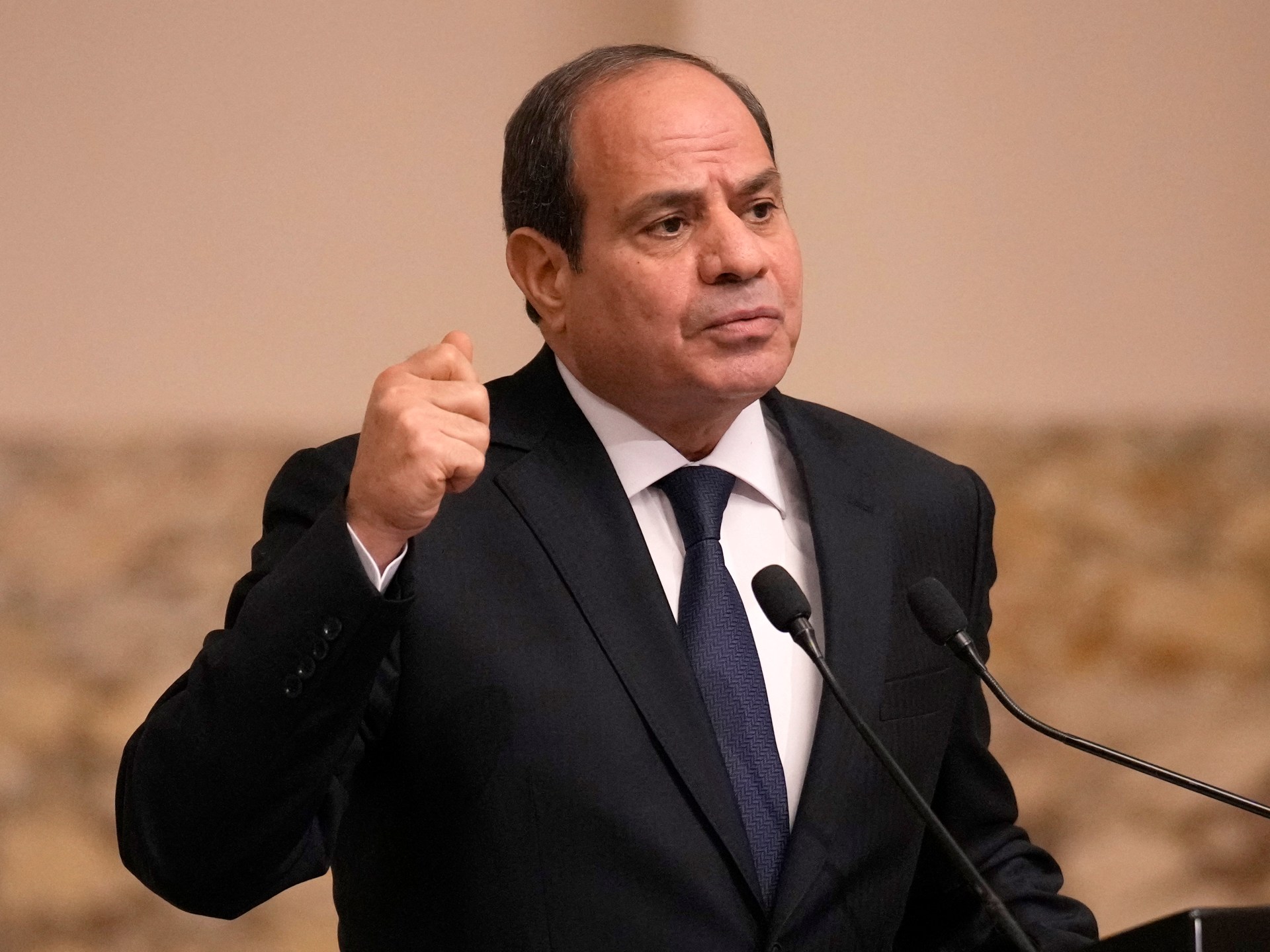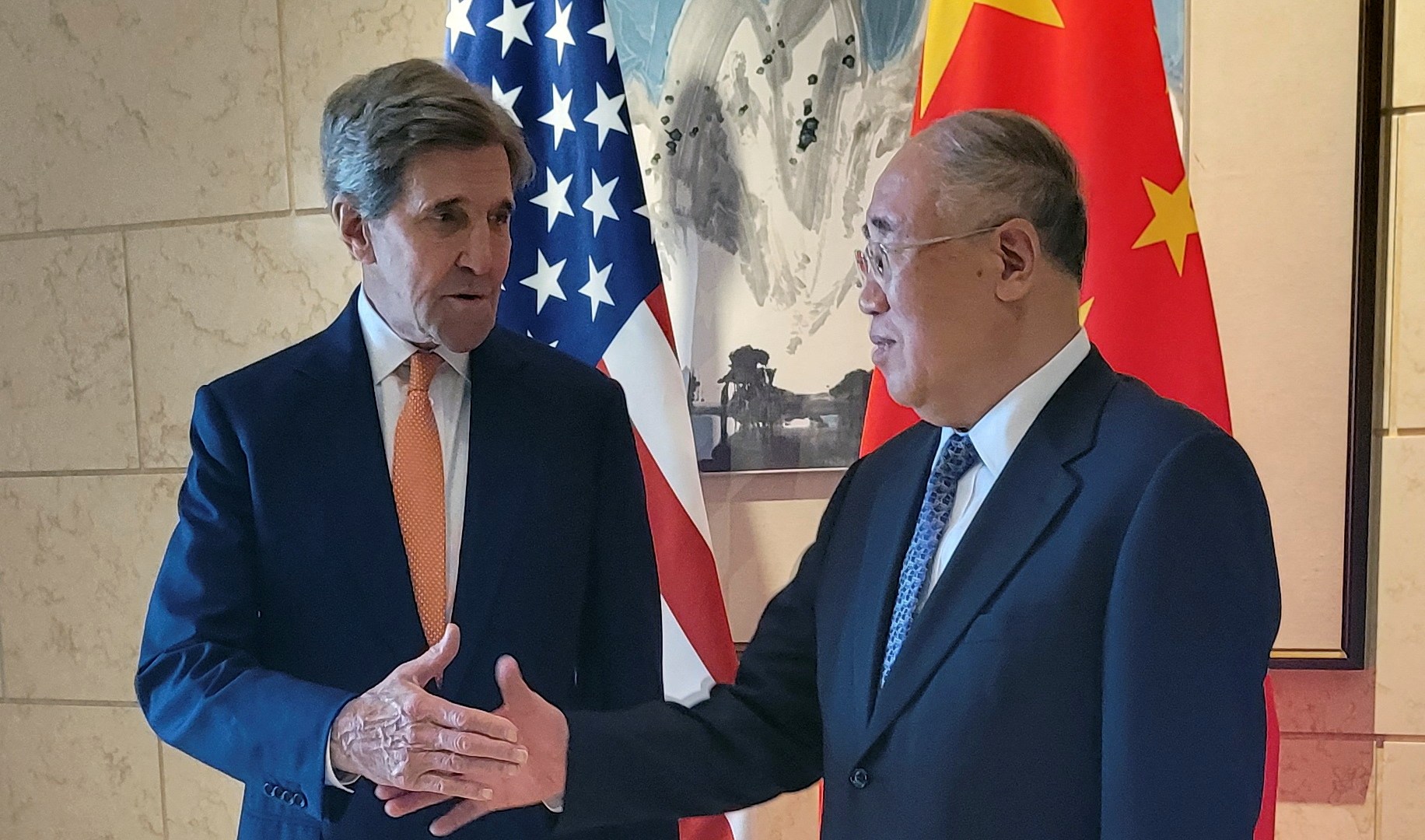
Lt. Gen. Mohamed Hamdan, the leader of a notorious paramilitary force fighting for control of Sudan’s civil war, is not his country’s president. But on a recent whirlwind tour of six African countries, he was treated like one.
Some of the continent’s most powerful leaders rolled out the red carpet for General Hamdan after he arrived for meetings in a luxury jet in late December and early January, having traded in his military uniform for business suits. In Kenya, traditional dancers waited on the plane steps. In South Africa he sank into an armchair next to the smiling President Cyril Ramaphosa.
And in Rwanda, General Hamdan posed solemnly at a monument to the victims of the 1994 genocide – even as his own troops in Sudan’s Darfur region were accused of genocide.
The surprise tour was a remarkable comeback for a commander who had often been rumored to be dead or wounded since the war in Sudan began in April. General Hamdan’s Rapid Support Forces are marching across Sudan, pushing the country’s regular army into retreat, thanks largely to military support from the United Arab Emirates, a Persian Gulf petrostate that has reportedly become a kingmaker in the Horn region of Africa, a new report developed by United Nations investigators.
The still-unpublished report, obtained by The New York Times, offers new details about how the Emirates have been smuggling powerful weapons – armed drones, howitzers and anti-aircraft missiles – to General Hamdan’s forces, known as the RSF, through Chad since last summer. sent via secret cargo flights and desert smuggling routes. The supplies have helped his forces to a series of victories that have changed the course of the war in recent months.
“This new RSF firepower had a massive impact on the balance of power, both in Darfur and other regions of Sudan,” the report said.
The war has brought complete disaster in Sudan, killing at least 12,000 people since April and forcing another 7.4 million from their homes United Nations estimates. The fighting has devastated large parts of the capital, Khartoum, and 25 million of Sudan’s 45 million people rely on aid to survive.
Experts say the Emirates is using its vast wealth and sophisticated weapons to steer the course of a turbulent region of Africa that is wracked by conflict but has enormous natural wealth and a long Red Sea coastline.
His motivations are ambiguous; Experts point to the Emirates’ desire for port business and agricultural land in a part of Africa they increasingly see as their strategic backyard, as well as their longstanding hostility to Islamist forces.
But the latest UN report, prepared by experts who monitored an arms embargo on Darfur in 2005, highlights the cost of these ambitions. It documents the widespread violence against civilians that has accompanied the advance of General Hamdan’s forces – massacres, bombings and reports of hundreds of rapes that are reminiscent of the Darfur genocide two decades ago.
This pattern of atrocities prompted U.S. Secretary of State Antony J. Blinken to to officially accuse the RSF on December 6 for war crimes, crimes against humanity and ethnic cleansing. (Mr Blinken said the other side of the war – the Sudanese military – had also committed war crimes through indiscriminate bombings.)
Weeks later, General Hamdan, also known as Hemeti, boarded a Boeing from Royal Jet, a company run by an adviser to UAE President Sheikh Mohamed bin Zayed Al Nahyan.
In a statement, the Emirates said it “does not supply arms and ammunition to any of the belligerents” and denied violating the arms embargo. Its priority is to protect civilians and seek a peaceful solution to the conflict through diplomacy with American, Arab and African partners.
But these denials are met with increasing skepticism from American officials, who fear that if the Rapid Support Forces win the war, Sudan will slide into famine, genocide or a new round of brutal, autocratic rule.
RSF did not respond to questions for this article.
In early December, the Biden administration announced that Vice President Kamala Harris had done so brought up the war in Sudan directly with Sheikh Mohamed on the sidelines of a UN climate summit. Over Christmas, Jake Sullivan, the national security adviser, raised this more forcefully in a phone call with his Emirati counterpart, Sheikh Tahnoon bin Zayed, according to a senior American official with knowledge of the call who spoke anonymously to discuss private conversations .
Still, many American lawmakers — and privately even some senior Biden administration officials — say the effort is still too timid and accuse the State Department of failing to come up with a plan to end the war despite months of diplomatic efforts alongside Saudi Arabia to have.
The CIA recently communicated its assessment of a total RSF victory in Sudan to President Biden and other senior officials, saying it would spread abuses and impede the spread of democracy in the region, American officials said. The US is also concerned about General Hamdan’s ties to the Russian Wagner mercenaries, who supplied him with anti-aircraft missiles in the early months of the war.
Those concerns come alongside growing calls from outside for more urgent American intervention in Sudan, including a stronger stance against Emirati interference, which critics say is disastrous.
“In its search for influence and security, the UAE could end up plunging the entire region into chaos,” said Michelle Gavin, a researcher at the Council on Foreign Relations. wrote recently.
General Hamdan, a former camel trader, rose to prominence as the commander of the brutal militia in the late 2000s the Janjaweed in Darfur. He amassed a war chest by building a business empire – first through control of gold mines, then as an ally of the Emirates.
Starting around 2016, General Hamdan sent fighters to Yemen on the Emirati payroll and later invested those profits in a network of about 50 Dubai-headquartered companies in the Emirates that still finance his war machine, UN investigators found.
Last July, the Emirates redoubled their attacks on General Hamdan. A new Emirati-built hospital to provide medical treatment to Sudanese refugees has emerged in Amdjarass, a remote town in eastern Chad. But Western intelligence agencies soon realized that they were actually cargo planes landing on a nearby airstrip Carrying weapons intended for the RSF
In its statement, the Emirates called the field hospital “a vital lifeline for civilians in need of medical care” and said it had invited U.N. inspectors to visit.
Within weeks, General Hamdan’s soldiers began roaming Darfur, eventually capturing four of five regional capitals. But it was the capture of Wad Madani, A city in the breadbasket of central Sudan that caused the greatest excitement of the war on December 15th.
The sudden defeat was done a humiliating blow to the Sudanese military in its political heartland, prompting calls for the resignation of its leader, General Abdel Fattah al-Burhan. It also raised fears that General Hamdan could take over the entire country.
In recent weeks, ethnic militias have formed across eastern Sudan to fend off possible advances by the RSF, Sudanese media reported. And Islamist hardliners, who largely disappeared from the public eye in recent years, have once again become a loud voice in Sudanese politics.
The Emirati operation to support General Hamdan has raised concerns among the International Federation of Red Cross and Red Crescent Societies, a global network that prides itself on neutrality. Red Cross officials are concerned about press releases from the Emirates with the Red Crescent logo about relief operations in Amdjarass that are supposedly being carried out by the Emirates Red Crescent.
In response to questions, the International Federation, which oversees 191 national societies, said it had sent a “fact-finding mission” to Chad in October and would send another next month. “If an allegation is substantiated, the IFRC will open an investigation,” a spokesman, Tommaso Della Longa, said in an email.
Several U.S. officials, speaking on condition of anonymity because of the sensitivity of the matter, said the Biden administration had named Tom Perriello, a former diplomat and Democratic congressman, as special envoy to Sudan. But the appointment was delayed because of a dispute over who Mr. Perriello would report to and how much authority he would wield – particularly in dealing with the Emirates, one of the officials said.
General Hamdan continued his diplomatic offensive on Thursday, meeting in Uganda with Ramtane Lamamra, the new UN envoy to Sudan. For Sudanese critics, the sharp suits and casual conversation are just a tactic as General Hamdan prepares for the next round of fighting, citing his New Year’s speech as evidence of his bad faith.
In a videotaped speech, General Hamdan wished Sudan’s Christians a Merry Christmas just days before his troops burned down a church. He then railed against “racial killings” despite the massacres in Darfur.
But the commander struck a tone that many Sudanese could understand. “One question is pressing on the minds of the Sudanese people,” said General Hamdan. “Where do we go?”
Julian E. Barnes contributed reporting from Washington.






Recent Comments